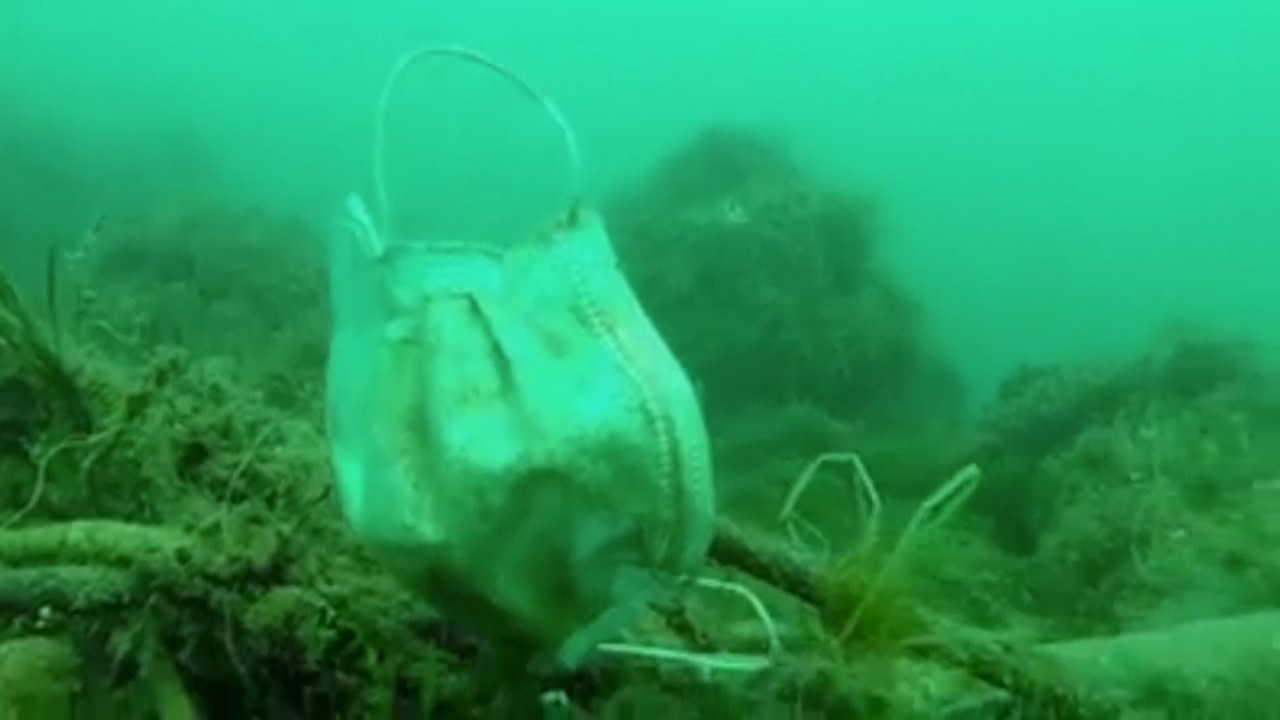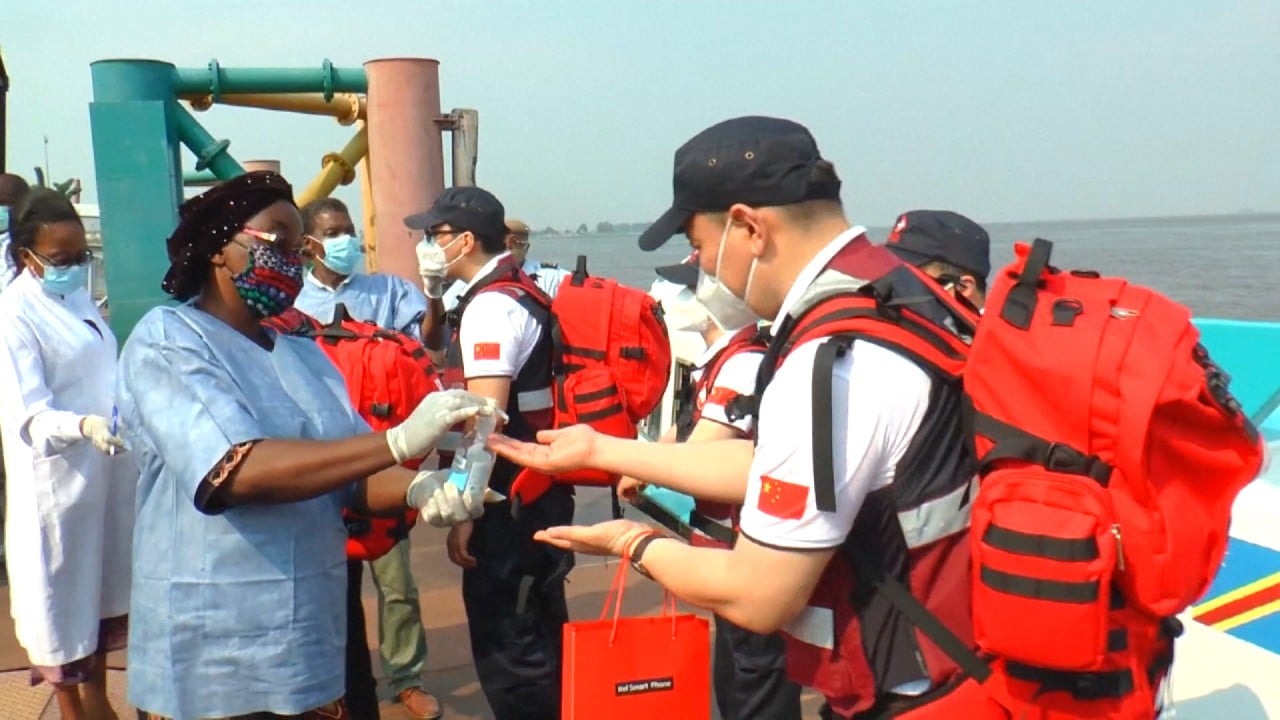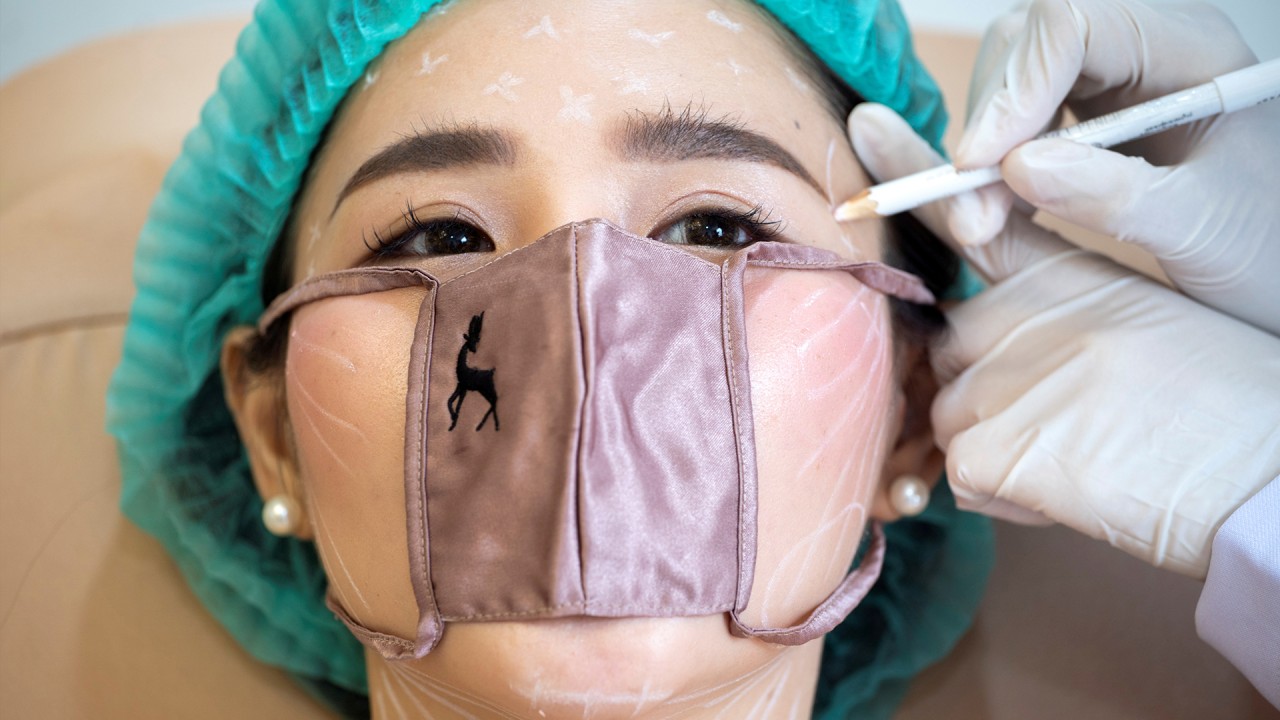
The Chinese firms on the front lines of Covid-19 mask diplomacy in Africa
- With traditional donors still grappling with the pandemic at home, Chinese companies are filling the void by donating essential protective equipment and test kits
- The crisis is a chance for the enterprises to present themselves as socially responsible partners on the continent, observer says
When the cargo plane touched down at Bole International Airport in the Ethiopian capital of Addis Ababa early last week, it had more than freight on board.
The flight from China brought more than half a million masks and various other medical supplies for the country – all donated by Chinese technology and construction companies.
Drought, virus, hunger: Zimbabwe’s misery deepens
The coronavirus arrived in Africa around March, and even then the shortages were serious – there were very few test kits for the pathogen, and supplies of personal protective equipment were low.
Since then there has been a flood of contributions from other Chinese companies to countries across the continent.
Why China’s ‘mask diplomacy’ is raising concern in the West
In the south, in Zimbabwe, tech companies Huawei and Sichuan PD Times as well as engineering firm Sinohydro were singled out for giving medical equipment and cash.
In the north, in Nigeria, China Civil Engineering Construction Corporation, an offshoot of Chinese state-owned China Railway Construction Corporation, last month delivered a 283-bed makeshift hospital, including six intensive care unit beds, in the capital Abuja.

01:37
Masks and gloves found in the Mediterranean Sea raise concerns about coronavirus-linked pollution
A few weeks earlier, the Chinese company brought in a 15-member team of medical experts and shipped in US$2 million in medical supplies, including Covid-19 test kits, ventilators and masks.
CCECC has promised to build a similar hospital in Algeria.
Coronavirus opens door to deeper collaboration in China-Africa healthtech
The supplies complement commitments from China at the government level. In the last three months, Beijing has sent medical experts to about a dozen African countries to help nations battle the coronavirus, including Algeria, Nigeria, Ethiopia, Djibouti, Zimbabwe, the Democratic Republic of Congo, Equatorial Guinea, Ivory Coast, and Burkina Faso.
In many instances, the medical teams arrive in Africa with medical supplies and equipment, donated by multinational companies operating in the continent.
In addition, Chinese doctors have held video conferences with many African counterparts to share their experience in the prevention and treatment of the novel coronavirus.
Huawei, the continent’s largest telecoms equipment vendor, has been helping make those connections.
“We have supported the response to the Covid-19 virus by donating videoconference equipment to the relevant organisations,” Huawei’s Kenya chief executive, Stone He, said.

02:39
China dispatches experts, medical supplies to African nations battling coronavirus
Huawei is just one of more than 10,000 Chinese-owned companies with a presence in Africa, most of which are involved in massive infrastructure projects such as railways and ports, according to a 2017 McKinsey report.
With traditional donors such as the United States and European nations still struggling to contain the coronavirus at home, China has stepped in to fill the void in Africa, emerging as a key humanitarian aid provider on the continent.
But some critics, including US President Donald Trump’s administration, have accused Beijing of trying to shift the global focus away from its missteps in handling the initial coronavirus outbreak.
Africa’s young and rural population may limit spread and severity of coronavirus, study says
Lina Benabdallah, an assistant professor of politics specialising in China-Africa relations at Wake Forest University in North Carolina, said the corporate help with the coronavirus was an opportunity for Chinese companies to improve their overall perceptions among African people.
“My sense is that the chance to visibly bring aid and assistance to African countries provides these companies a unique PR opportunity as well as an opportunity for marketing and for scoring reputation points as serious and socially responsible companies,” Benabdallah said.

02:13
Beauty clinic in Thailand offers mini face masks to reduce risk of coronavirus infections
David Shinn, a former US ambassador to Ethiopia and Burkina Faso, said this was the first time he had seen so many state-owned and private Chinese companies make major donations to African countries.
“The scale of Covid-19 donations in Africa by Chinese companies is more massive than anything I have seen before,” said Shinn, an adjunct professor at George Washington University’s Elliott School of International Affairs.
However, Chinese companies periodically made modest donations of consumer goods and equipment to African governments and local organisations, he said.
“I saw recently, for example, where Chinese companies in Zambia donated two police cars to the Lusaka police force to improve security for the Chinese community,” Shinn said.
He said “it would seem to follow” that the companies were being “encouraged” by the government of China and the Communist Party to make these donations.

